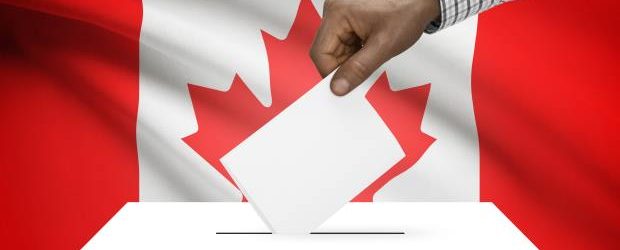A Green Party government would require Facebook, Twitter, and other social media platforms operating in Canada to forbid posters from being anonymous as one of its steps to improve privacy and cyber security online.
Instead, the party said in its election platform released Monday, a Green government will “ensure that only actual people, with verifiable identities, are able to publish on those platforms.”
The platform didn’t explain how the federal government will be able to force social media users to use their real names. In a Twitter post, Halifax privacy lawyer David Fraser said the proposal “seems to fly in the face of [Canadian] constitutional jurisprudence that affirms the right to anonymity on the Internet.”
Worries about anonymous and fake accounts on social media being used to post disinformation have been rising for several years and reached a crescendo last year when U.S. prosecutors alleged Russia was behind a massive fake news campaign during the 2016 U.S. election. It is alleged that an organization called the Internet Research Agency created hundreds of social media accounts and used them to develop certain fictitious U.S. personas into what the indictment calls “leaders of public opinion” in the United States.
There are also worries that people within Canada will also take advantage of the anonymous nature of the Internet to do the same thing with texts and doctored images or videos.
In December 2018, the House of Commons standing committee on access to information, ethics, and privacy concluded this is an era of misinformation and disinformation. However, rather than find a solution around identity, it recommended social media platforms operating here be required to identify and remove inauthentic and fraudulent accounts impersonating others for malicious reasons; to adhere to a code of practices that would require prompt responses to reports of harassment, threats, and hate speech, and require the removal of defamatory, fraudulent, and maliciously manipulated content.
Other privacy-related planks in the Green platform include:
-Requiring companies to grant access to a person to all information they hold on them and to delete personal information from company databases when requested by that person. This seems similar to the European Union’s General Data Protection Regulation (GDPR). Individuals would have the “right to be forgotten,” the platform says, without explanation. However, under the GDPR this is not an absolute right.
-Establishing a parliamentary inquiry to recommend modernizing Canada’s privacy laws governing the “Internet of Things.” Experts complain the growing number IoT devices – ranging from routers to cars – are being produced and sold with poor security.
-Obliging the Communications Security Establishment and the Candian Security Intelligence Service (CSIS) to get a warrant “before intruding on Canadians’ communications”.
-Prohibiting the routine surveillance of Canadians who protest against the government and the sharing of protesters and non-government organization (NGO) staff information with the National Energy Board, and others.
-Prohibiting cyber surveillance and bulk collection of data by intelligence and police agencies.
-Significantly increasing the powers of the federal Privacy Commissioner, in particular to protect identity and personal data, and to enforce privacy laws.
The platform also promises a Green Party government would require all federal political parties to follow the Privacy Act. Right now parties are exempt from privacy legislation, which has been criticized by many privacy experts.
Under recent changes to the Canada Elections Act, federal political parties only have to declare specific privacy policies they will follow.
